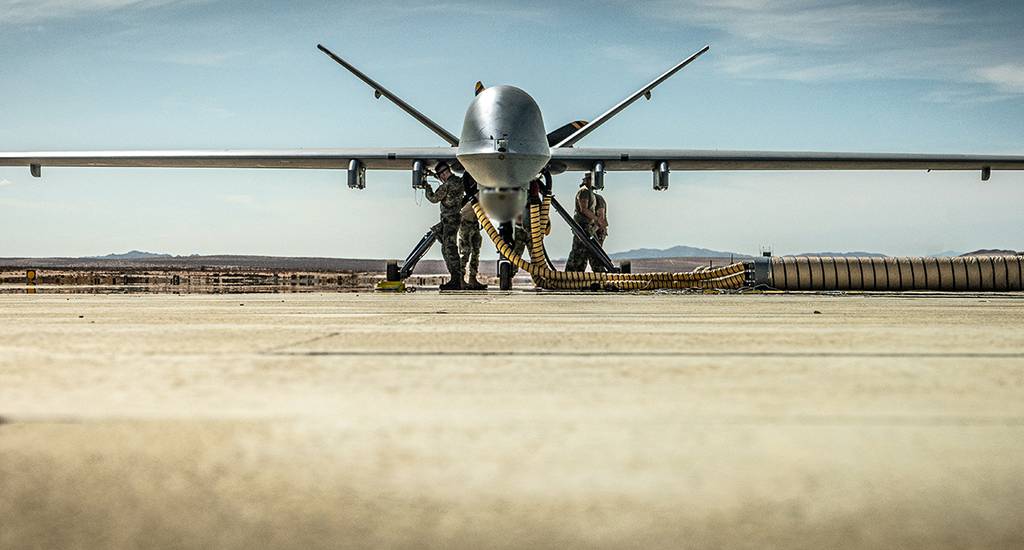
The Marine Corps has so far trained 100 leathernecks as MQ-9 pilots as it seeks to fill out new squadrons with the uncrewed system to extend reach and reconnaissance for its own drone program.
The Corps first leased the MQ-9 Reaper in 2018 and only received funding to purchase the drones in 2020, the same year the service created the Reaper military occupational specialty of 7318.
In the 2022 aviation plan, the Corps noted it had trained only 38 of the then-68 pilots it needed, which continue to be commissioned officers, despite the Air Force’s use of warrant officer drone pilots.
The Reaper first fielded to the U.S. Air Force in 2007 and was used extensively throughout the wars in Iraq and Afghanistan, and operations globally. The Air Force operated more than 300 Reapers as of 2021, Defense News previously reported.
RELATED
:quality(70)/cloudfront-us-east-1.images.arcpublishing.com/archetype/FIVLBXSQFBEXTEBFKP5V34YDXU.jpg)
The Reaper is the Corps’ first group five drone. The service has long operated group three drones, such as the RQ-21A Blackjack.
A group three drone weighs between 55 pounds and 1,320 pounds, typically operating below 18,000 feet. The group five drones weigh more than 1,320 pounds and operate at altitudes higher than 18,000 feet.
Three units currently operate the Reaper: VMU-1 in Yuma, Arizona; UX-24 at Naval Air Station Patuxent River, Maryland; and VMU-3 at Marine Corps Air Station Kaneohe Bay, Hawaii.
VMU-1 was the first operational squadron to use the Reaper, conducting intelligence, surveillance and reconnaissance support in U.S. Central Command beginning in 2018.
UX-24 is an aviation testing unit. And VMU-3 reached initial operational capability in August, Marine Corps Times previously reported.
The VMU-3 “Phantoms” provide aerial reconnaissance for the 3rd Marine Littoral Regiment.
:quality(70)/cloudfront-us-east-1.images.arcpublishing.com/archetype/KFN7TLTUEJHX3LQSK6S2DGWNKI.jpg)
Marine spokesman Maj. Jordan Fox said in March that the squadron supports “a wide range of operations such as coastal and border surveillance, weapons tracking, embargo enforcement, humanitarian/disaster assistance, support of peacekeeping and counter-narcotic operations.”
Marines plan to establish the MQ-9A Fleet Replacement Squadron in Cherry Point, North Carolina, Capt. Alyssa Myers told Marine Corps Times.
Former Commandant Gen. David Berger in January 2023 posed a question to Marine aviation leaders in the services’s training and education planning document whether the service should consider options other than commissioned officers to fly the Reaper, given a shortage of fixed wing pilots.
To date, the Corps has stuck with commissioned officers for those jobs.
Under current plans, the Corps aims to field 20 reaper drones over the next decade, Myers said.
Author: Todd South
Source: DefenseNews



